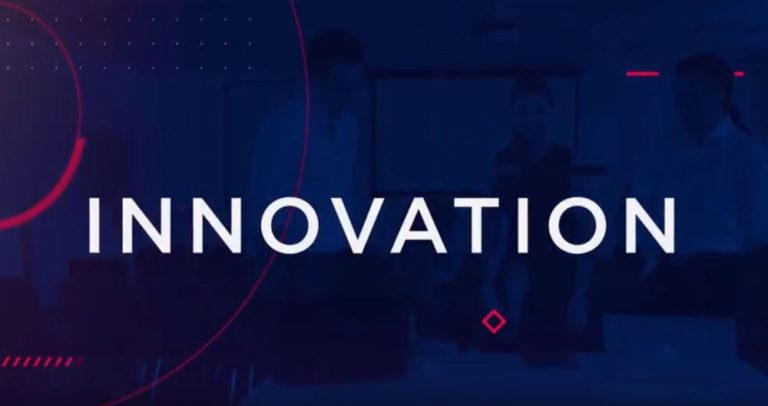[vc_row][vc_column][vc_column_text]The funding – which has attracted an additional $21.3 million in industry contributions – comes from the third round of the BioMedTech Horizons (BMTH) program, an initiative of the Medical Research Future Fund operated by MTPConnect.
MTPConnect Managing Director and CEO, Dr Dan Grant, says round three of BMTH focused predominantly on digital health innovations.
“We know that digital evolution continues to drive change across many aspects of healthcare so for this funding round we targeted support for SMEs and companies researching digitally-enabled medical devices in mobile health, health information technology, wearable devices, telehealth and telemedicine, and digitally-enabled personalised medicine,” Dr Grant said.
“From the 21 selected projects, patients of the future are set to benefit from new research into treatments and diagnostics for conditions such as cancer, epilepsy, stroke, paralysis, Irritable Bowel Syndrome, brain injuries, back pain and chronic middle ear disease.
“In a highly competitive round, our independent and expert evaluation committee has selected projects in Western Australia, South Australia, Victoria and NSW.
“The $18.8 million we’ve allocated to these 21 projects has leveraged an additional $21.3 million in contributions from industry which means a total of $40.1 million is flowing into the healthtech sector.
“Through the BMTH program and the MRFF we are backing innovation and technological advancements in areas such as digital health solutions, medical devices, precision and regenerative medicine supported by advanced manufacturing and clinical trials with a vision of better health outcomes globally.
“Building home-grown translational and commercialisation capacity means boosting our knowledge economy and creating new products, jobs and potential exports. This is particularly important now considering the hit that our sector has taken dealing with the impact of COVID-19 pandemic and lockdown.”
“MTAA is proud to be part of the BioMedTech Horizons program and supporting Australian innovation,” said Ian Burgess, MTAA CEO.
“The exciting technologies that are being supported by the BioMedTech Horizons program will contribute enormous value to the Australian healthcare system.”
The BMTH program makes funding available for SMEs to develop new health, biological and medical technologies to reach proof-of-concept so they are attractive for private capital investment and commercialisation. Further details about the 21 successful projects are listed below.
Round 3 recipients:
Anatomics Pty Ltd, Victoria, is developing digitally enabled skullcaps to monitor brain swelling in craniectomy patients to optimise timing of skull reconstruction surgery.
Anisop Holdings Pty Ltd, New South Wales, is developing a nano-optimised surface to prevent orthopaedic and dental implant infections.
Apollo Medical Imaging Technology Pty Ltd, Victoria, is developing an Artificial Intelligence-based clinical decision support software for guided acute stroke therapy.
Artrya Pty Ltd, Western Australia, is developing Artificial Intelligence methods for evaluating cardiac CT angiography and high-risk imaging biomarkers.
Atmo Biosciences Pty Ltd, Victoria, is developing an application of Atmo ingestible gas sensing capsule to diagnose Irritable Bowel Syndrome (IBS) and Small Intestinal Bacterial Overgrowth (SIBO).
Bionic Vision Technologies Pty Ltd, Victoria, is developing an implantable vision system and algorithm in their Bionic Eye Generation 3 device to restore functional vision for blind patients.
Carbon Cybernetics, Victoria, is developing a high-resolution cortical recording of the brain for the prediction and prevention of epileptic seizures.
Ear Science Institute Australia, Western Australia, is advancing the commercialisation of its ClearDrum® device, which is an acoustically-optimised silk fibroin implant for the treatment of chronic middle ear disease.
Ferronova Pty Ltd, South Australia, is working to improve colorectal cancer outcomes with hybrid cancer tracers.
Hemideina, Victoria, is developing a miniature, low-energy wireless power and data transmission system for implantable medical devices.
Inventia Life Science Pty Ltd, New South Wales, is developing a 3D bioprinting system for intraoperative skin regeneration.
Merunova Pty Ltd, New South Wales, is developing an augmented digital re-construction and re-visualisation of spine MRI for the personalised diagnosis of back pain.
Miniprobes Pty Ltd, South Australia, is developing a smart brain biopsy needle for faster, safer neurosurgery.
Neuromersiv Pty Ltd, New South Wales, is advancing the commercialisation of its hand and arm wearable device for use with the Neuromersiv virtual reality rehabilitation system.
Northern Research Pty Ltd, New South Wales, is advancing the commercialisation of its PulseVAD pulsatile rotary blood pump that is designed to treat patients suffering from a form of Congestive Heart Failure (CHF) for which, at present, there is no effective treatment.
OncoRes Medical Pty Ltd, Western Australia, is developing compact wireless technology for improvement in the accuracy during breast conserving surgery.
Optiscan Pty Ltd, Victoria, is developing its non-invasive confocal endomicroscopy system to enhance oral cancer screening and surgical margin assessment.
Seer, Victoria, is developing personalised epilepsy treatment via mobile and wearable monitoring.
Synchron Australia Pty Ltd, Victoria, is advancing the commercialisation of its Stentrode; a minimally-invasive brain-computer interface being designed to enable people with paralysis to restore functional independence by engaging in activities of daily living such as email communication, text messaging and online shopping, by controlling apps and external devices through thought alone, and without requiring open brain surgery.
VenstraMedical Pty Ltd, New South Wales, is enhancing the development of a transcatheter blood pump system for Cardiogenic Shock and Hemodynamically Compromised patients.
Zip Diagnostics, Victoria, is establishing domestic capabilities for combined R&D and manufacture of point-of-care diagnostics.[/vc_column_text][/vc_column][/vc_row]




